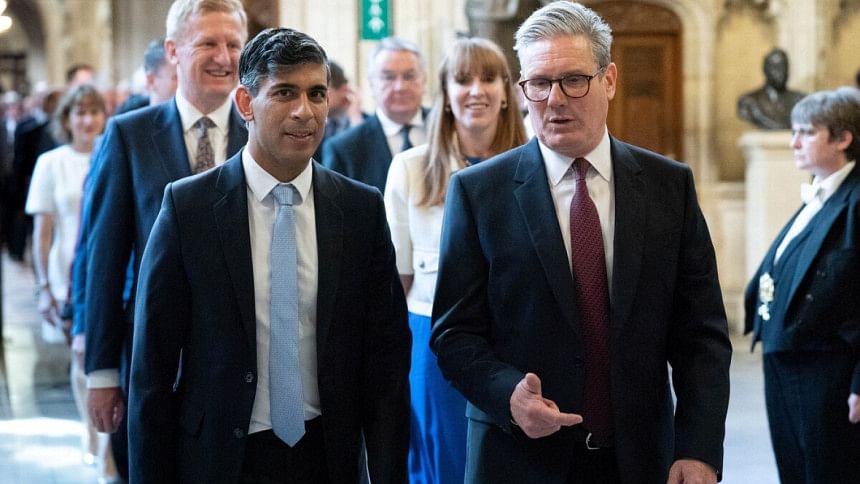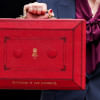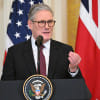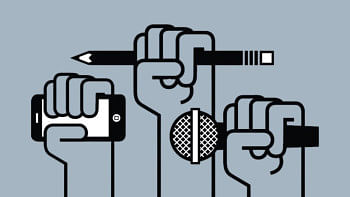Frogs in the saucepan: A metaphor for our times

It is that time of year again when part of my garden in Bath wakes up—the ponds. My wife, Angela, annually expects this event to occur on February 17, but it was late this year by a few days. We don't know how to account for this, but we suspect global turmoil. Climate is the most likely candidate, though it could be because compared to this time last year, the ponds have received some attention from the evil human, me: they needed a bit of cleaning up. Here, we encounter the amphibian-human interface. Are the ponds mine or theirs? But fortunately, the frogs are back and performing their reproductive duty in the usual wanton way.
These seasonal dilemmas remind me of the frogs in a saucepan of water metaphor: perhaps THE major challenge for us humans in 2025 and for the coming years. The "theory" is that if frogs are swimming around in a saucepan, which is slowly being heated up, they stay as the water gets warmer, adapting to the incremental change in their circumstances. And they keep adapting until suddenly it is too late to escape, and the water has boiled! This is a powerful metaphor for us humans dealing not just with slower, incremental change like the climate where we adapt through intermediate tactics until, perhaps, it is too late, but instead dealing with deliberate processes of disruption to a longstanding global order.
This prospect of sudden transformation is arising from the Trump regime in the US. In the past few decades, we have had to endure previous right-wing disruptors such as Reagan, Thatcher, the Bushes, the recent decade of UK Tories and the threat of fascist tendencies re-emerging among many political parties in Europe as well as further afield across Asia and Latin America, with some of them gaining power or at least significant influence. And we have adjusted to the curtailment of our liberties and discrimination in various forms—social, racial, ethnic, immigrant and so on. Indeed, we have been deliberately trading liberty for security. This pattern of incremental adjustment occurred in the early days of Nazism in 1930s Germany. It occurred under McCarthyism in the USA. It occurred in South Africa under apartheid. The list goes on. But if we return to the rise of antisemitic Nazism in middle Europe, the Jews could observe the steady encroachment on their freedoms and citizenship and the expansion of discrimination against them, thinking that the full suppression of others (communists, the Slavs, the disabled, homosexuals) could never be applied to themselves—until it was, the Holocaust.
So what now? The post-WWII "protections" erected in Europe, especially NATO entailing a defensive North Atlantic alliance between the USA and Western Europe, have been in place for nearly 80 years. And the Cold War with the Soviet Union "ended" in 1989. We dared to breathe more freely. The European Union expanded East. The USA had our backs. We were comfortable in the saucepan. Even left-wing radicals, critical of neo-liberalism, and other advocates of nuclear disarmament and pacifism could operate within this post-war umbrella. But this apparent paradise of security had flaws, which we in the saucepan chose to ignore until someone turned up the heat. We have relied upon a notion of "shared values" with our big, wealthy transatlantic neighbour, values which would remain strong enough to underwrite their protection of us against more dictatorial regimes in many of the ex-Soviet states, including Russia itself. But in Europe, we are now witnessing a steady erosion of shared socially inclusive sentiment to the point of imitating the US's re-introduction of discrimination, based upon race and origin. Our right-wing parties in Europe are leading the way in this imitation—adjusting to this redefinition of values, of being happy to sell off our economic assets (38 percent of annual non-financial turnover in the UK is owned in the US), and to close our borders to immigration despite our ageing demographic profile. We face the danger of our own isolation unless we share in these illiberal tropes which have been stirred up by the incumbent of the White House and his cronies in their pursuit of oligarchical power. This is our collective Faustian dilemma.
As always with populist perspectives, there can be grains of truth upon which distortions and exaggerations can be based. Europe has been behaving like those slowly warming frogs in the saucepan, swimming in a false sense of security. We have underfunded our defence since the end of the Cold War, free-riding to a degree on the US; we (especially Germany under Merkel) have relied heavily and conveniently upon Russian sources of fossil fuel-based energy; and we have expanded eastwards (EU and NATO), contrary to previous undertakings given to Russia. This represents complacency while giving Russia at least one moral alibi to re-Ukraine (eastwards expansion) and a weapon in terms of energy dependency (now switched to the US, i.e. imported liquified natural gas). We have been fools in an imaginary paradise, never believing that on the one hand Russia would push back in Europe beyond its post-Soviet frontiers, and always believing that the US and Western Europe, certainly the UK, could never fall out with each other. The latter prospect is now as real as the former one, at least for the next few years and who knows how the new republicans will try to cling to power in November 2028!
Like those frogs, we are crammed into that saucepan without much room to manoeuvre! The frogs in my pond will climb out soon and hide elsewhere in the garden, returning for occasional summer recreation. What options do we Europeans have to enable the equivalent? To meet defence needs, rising taxes will again hit the poor in our unequal societies; more borrowing will spook the money markets, and interest rates will rise, again hitting the poor the hardest. Meanwhile, already, shares in weapons production are already rising. These ingredients for stagflation have historically been a breeding ground for reactionary populism roused by demagogues with no sustainable or inclusive answers. Unrestrained capitalism alongside closed borders for humans is certainly not the answer. There is a collective way through this via progressive taxation and greening economic growth to share the well and our common wealth better. But first, as in Bangladesh last August, we have to keep democracy alive to prevent the capture of the state. We have to push back before it is too late, as happens in the frog metaphor.
Dr Geof Wood is a development anthropologist and author of several books and numerous journal articles, with a regional focus on South Asia. He is also emeritus professor of international development at the University of Bath, UK.
Views expressed in this article are the author's own.
Follow The Daily Star Opinion on Facebook for the latest opinions, commentaries and analyses by experts and professionals. To contribute your article or letter to The Daily Star Opinion, see our guidelines for submission.

 For all latest news, follow The Daily Star's Google News channel.
For all latest news, follow The Daily Star's Google News channel. 










Comments